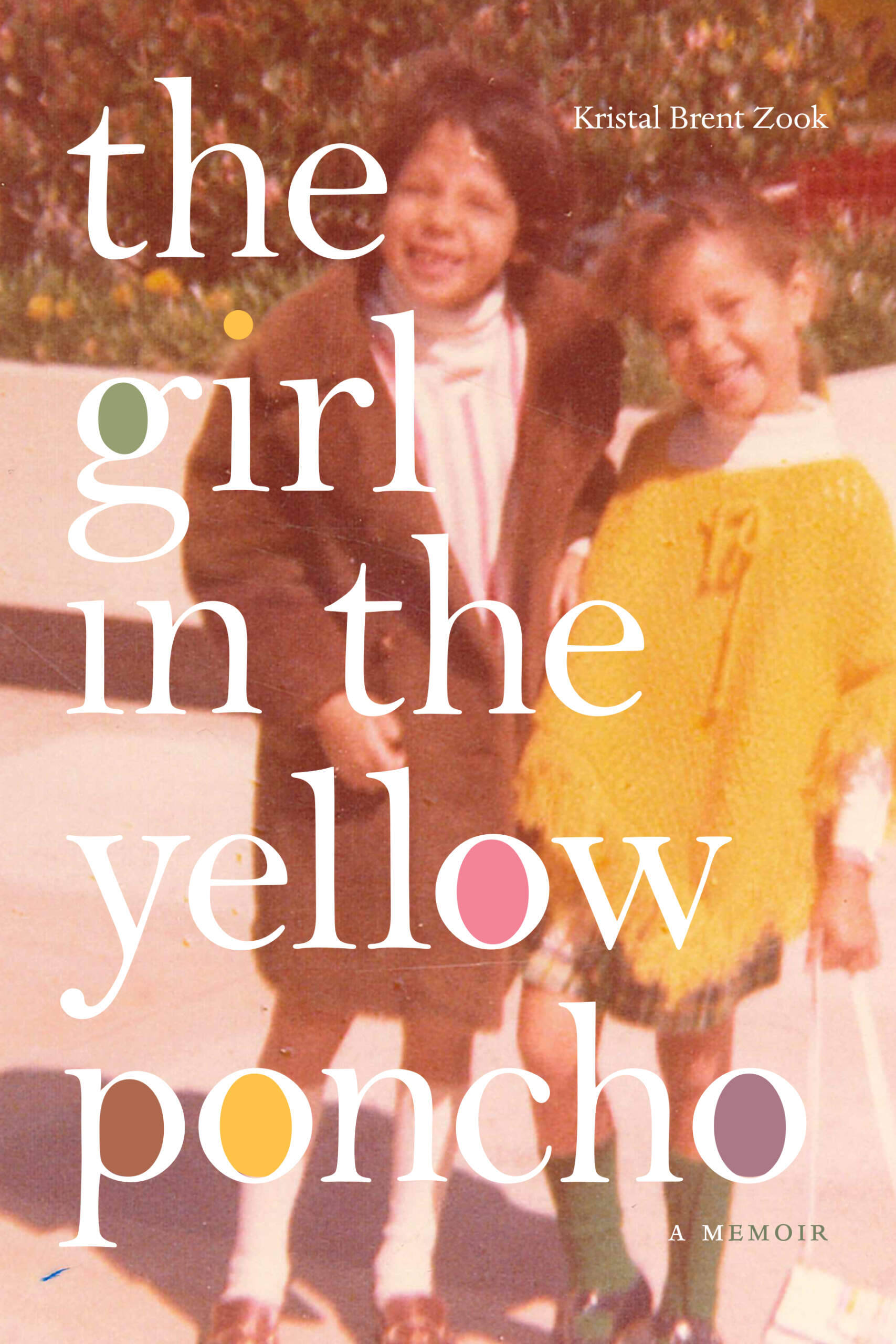Advertisement
'The Girl in the Yellow Poncho' memoir explores growing up biracial and abandoned

Host Celeste Headlee speaks with journalist and professor Kristal Brent Zook about her new memoir "The Girl in the Yellow Poncho." Zook's white father abandoned her Black mother when Zook was an infant, and she writes about her struggles with identity and abandonment.

Book excerpt: 'The Girl in the Yellow Poncho'
By Kristal Brent Zook
Preface
There were interviews. Always interviews. Pen and notebook in hand, I rushed here and there, to appointments with television and film directors, producers, actors, athletes, and musical artists. As an entertainment and cultural reporter, I wrote features about Magic Johnson, Jamie Foxx, Jada Pinkett Smith, Keenen Ivory Wayans, Jill Scott, and Lil’ Kim, to name just a few. Later, as I expanded into social justice reporting, there were politicians, activists, entrepreneurs, and all manner of change makers. I sat close as they laid out their speeches and plans, hoping that my words would also somehow contribute to the task of lifting as we climbed. I saw myself as a race woman, in the old-fashioned Ida B. Wells sense of the word; a journalist who dug deep to lay bare injustices and hold a mirror to our collective trauma and triumph. I was down for the cause, despite what some may have seen when they looked at me. I knew that my nearly white appearance put me at the periphery of this landscape, and yet I claimed it as my own. Raised by my African American mother and grandmother, where else was I going to go? I was light-skinned, but for me, there was no question of being anything but Black. Still, for many years, I held on to a secret shame and deep insecurities.
My white father had abandoned my mother before I was born, sending a message that locked itself into my psyche. I was unworthy of a man’s love. Unworthy of white protection. Unworthy of the picturesque (and always white) family life I saw on television. To add to my humiliation, a father figure next door violated my innocence as a child, confirming that I did not belong to the tribe of girls who were to be cherished. I wrestled with these demons of sexual assault, trauma, abandonment, and racial shame for the first four decades of my life. And when I say wrestled, I mean literally, knock down to the ground, kicking and punching, wrestled. I journeyed across oceans. I prayed. I counseled. Time and again, I beat back the temptation to sink into a long history of generational drug and alcohol addiction that was entrenched on both the white and Black sides of my family tree. I would be whole, I decided, even if I had to grab the devil of my past by the throat and wrench the air from his lungs in a gladiatorial do-or-die fight to the death. I did that. I took him on. And I won. Today, my lost father is found, and amazingly present. So, too, is my mother, an unexpected piece of my happy-ending puzzle. Somehow, against all odds, I’ve managed to create the family of my dreams, with a husband I adore, a lovely stepdaughter, and my sunshine, our six-year-old daughter. I could not have done that without faith, an open heart, and a determination to heal. My husband and stepdaughter are from Spain, while my daughter is biracial, of African American and Southeast Asian heritage. Our household is undeniably multiracial, part of the rapidly expanding population that has only recently begun to explode into our collective national awareness. So where does that leave me, the journalist who has written about blackness and race all her life? Who am I now, if not the reporter documenting the suffering and strength of Black women? My answer is this book. In it, I take a journey back to a time when I recognized the power of others to move mountains but couldn’t quite see the brightness of my own star. This story is my testament to the power of forgiveness and settling into one’s own authentic identity. In short, it’s my rediscovery of a little girl who once stood tall and joyful in her favorite yellow poncho.
Kansas avenue
“California law requires rentals to be free of rodent and pest infestations,” Mom said through a clenched jaw and festering indignation. “We put all that in the letter.” After our landlord refused to exterminate our apartment, which was crawling with roaches, Mom had consulted with Legal Aid and discovered that she could pay for a fumigation service herself, deducting the cost from that month’s rent. She was resourceful in that way. Smart. But now, her anger draped itself into the corners of our little secondhand Toyota Corolla, which she had scrimped and saved to buy. What a relief to ride in a car, I thought, staring out the window. No more trudging back and forth on the stinky bus. Mom took a drag of her Virginia Slims cigarette, filling the car with smoke. From the passenger seat, my grandmother’s face was steely. She sucked her teeth, considering the situation, and finally replied, “That man ain’t shit.” Dra, as we liked to call her, was only four foot eleven, but for me, and I suspect for my cousin Lisa, too, who rode beside me in the back seat, Dra was the most powerful force in our world. Anybody who risked her wrath, well, that was risking quite a lot.
Mom and Dra often had conversations like this one: bitter exchanges about no-good, two-bit male landlords or bosses. While most of what they said went over my head, the gist of their worldview was as clear as Mom’s Helen Reddy soundtrack. We were Black. We were women. We worked hard. We struggled. Fighting back and being angry was the story of our lives, it seemed to me. Men, when they managed to stick around, only increased our heartaches. We might have enjoyed watching Shaft and Super Fly on-screen—cool cats who exploded into movie theaters in the early 1970s. But such men didn’t exist in real life. Not in our world. I didn’t know it then, but Mom and Dra were laying a serious foundation for us girls, outlining the contours of a belief system I would take to heart so completely for the first few decades of my life that it never occurred to me how fundamental it was to my being. Or how detrimental. They taught us, both in words and actions, one all-encompassing lesson: Black women survive. Push past the fear, the sadness, the regret, and don’t count on anyone but yourself. Just keep stepping. Most importantly, never take the time to acknowledge old hurts and vulnerabilities. Leave those where they are, raw and unhealed beneath seemingly impenetrable surfaces.
Excerpt from "The Girl in the Yellow Poncho: A Memoir" by Kristal Brent Zook. Copyright Duke University Press, 2023.
This segment aired on September 28, 2023.